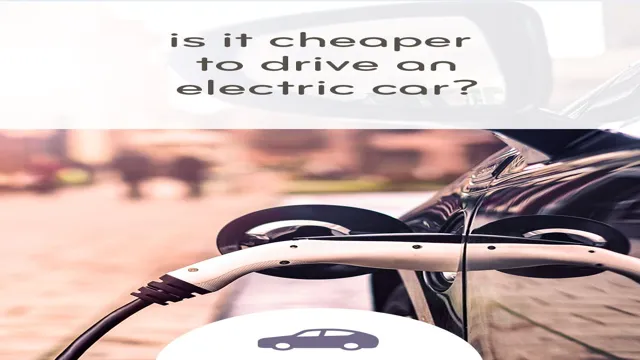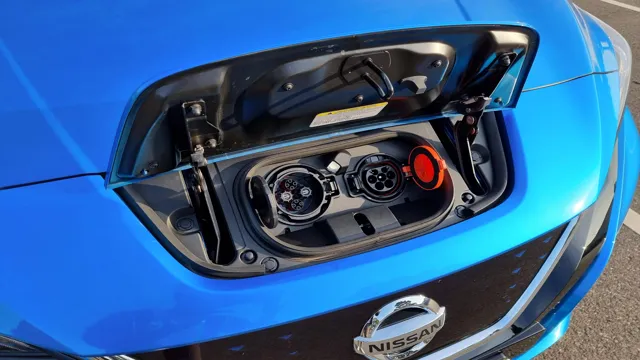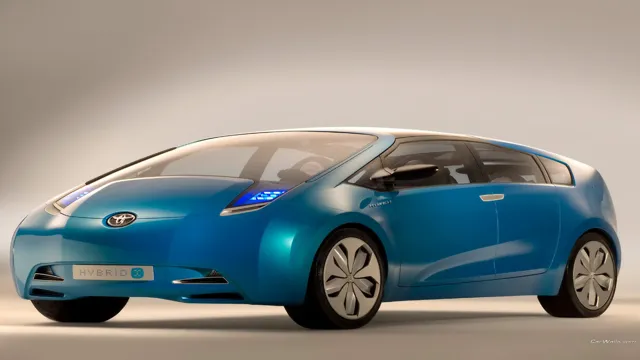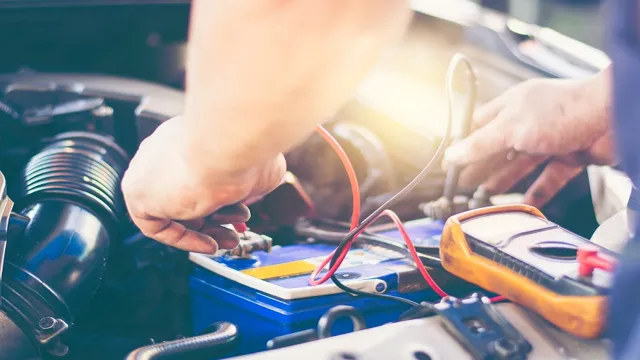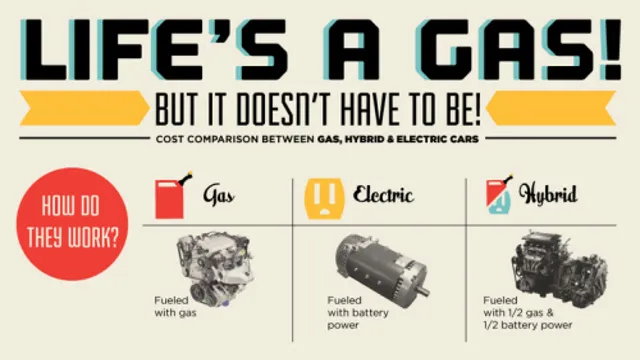Electric Cars vs Gas Cars: Is It Cheaper to Maintain an Electric Car?
Modern electric cars continue to rise in popularity among vehicle enthusiasts. They are an eco-friendly alternative to gasoline-powered cars, and they offer lower fuel expenses. However, many potential electric car owners wonder what maintenance costs they can expect.
Fortunately, owning an electric car typically means lower maintenance costs overall. The lack of an internal combustion engine means the amount of maintenance required to keep the car running smoothly is substantially lower than that required for a traditional gasoline-powered vehicle. So how exactly do electric car maintenance costs stack up against those of gasoline-powered cars? Let’s explore this topic further.
Cost Comparison
If you’re in the market for a new car, you might be wondering whether it’s cheaper to maintain an electric car or a traditional gas-powered vehicle. In general, electric cars require less maintenance than gas-powered cars, thanks in large part to their simpler design. With no engine oil to change, no transmission fluid to flush, and no spark plugs to replace, electric cars can be significantly cheaper to maintain over the long term.
Additionally, because electric cars rely on regenerative braking to slow down, they put less wear and tear on their brake pads than gas-powered cars, which can save you money on routine brake maintenance. However, it’s worth noting that electric cars do require periodic battery maintenance, and the cost of replacing a worn-out battery can be quite high. Overall, though, if you’re looking to save money on car maintenance over the long term, an electric car is likely the way to go.
Comparing Electric and Gasoline Cars
When it comes to comparing electric and gasoline cars, cost is a crucial factor to consider. While electric cars tend to have a higher upfront price tag, they tend to be more cost-effective in the long run. Electric cars can run on about a third of the cost of gasoline cars.
This is because they don’t require frequent oil changes and other maintenance costs associated with gasoline engines. Additionally, electric cars, in general, have a longer lifespan compared to their gasoline-powered counterparts. Although it may be daunting to spend more money initially on an electric car, the cost might balance out in the long run, particularly if gas prices begin to increase.
Furthermore, as demand for electric cars increases, the prices will continue to fall, and more charging stations will be set up, making them more affordable to the general public. In conclusion, even though electric cars have a higher purchase price, in the end, they can help save significant amounts of money.
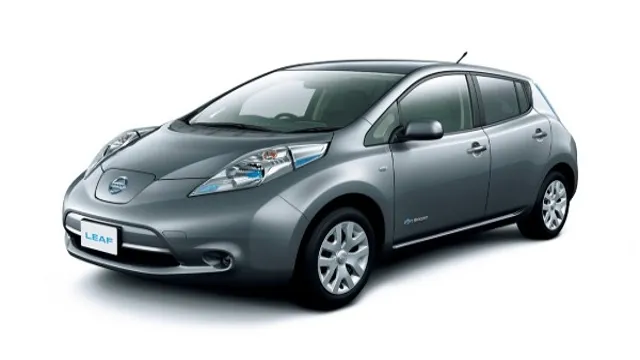
Factors That Affect Maintenance Costs
When considering the cost of maintenance, it’s important to compare different options and factors that impact your expenses. For example, a newer vehicle may have lower maintenance costs than an older one due to better technology and fewer repairs needed. Additionally, the type of vehicle you have can also affect maintenance costs – luxury models usually require more expensive parts and repairs.
Another important factor is the frequency of maintenance – regularly scheduled maintenance can prevent larger issues and save money in the long run. Before deciding on a maintenance plan, it’s worth doing some research and comparing the costs of different options to make a well-informed decision. By considering these various factors, you can minimize your overall maintenance costs and keep your vehicle running smoothly.
Electric Car Maintenance Costs
When it comes to electric car maintenance costs, the answer is a resounding yes! It is generally cheaper to maintain an electric car than its gas-guzzling counterparts. This is because electric cars require less routine maintenance than traditional cars. With no oil changes and fewer moving parts, electric cars are also less expensive to service.
Moreover, depending on the model, electric cars have a longer lifespan than gas cars, and the cost of battery replacement has decreased significantly in recent years. With the growing availability of charging infrastructure and tax incentives for EV ownership, electric cars make more sense than ever before. Although the upfront cost may be higher, going electric can save you money in the long run.
So ditch that gasoline car and switch to an electric vehicle – not just for environmental reasons but for your wallet too!
Annual Maintenance Costs
Electric car maintenance costs can be significantly lower than traditional gasoline-powered vehicles due to their simpler design and the absence of certain maintenance requirements. For example, electric cars do not require oil changes or frequent brake replacements since regenerative braking systems can significantly reduce wear and tear. Additionally, electric cars typically have fewer moving parts than traditional internal combustion engines, which reduces the likelihood of malfunctions and mechanical failures.
On average, electric car maintenance costs can range from $600-$1,200 annually, which is significantly less than the $1,800-$2,000 annual maintenance costs of traditional gas-powered cars. Overall, electric cars can provide significant cost savings over time, making them not only environmentally friendly but also financially practical. So, if you’re looking for a vehicle that is cost-effective, eco-friendly, and requires less maintenance, then an electric car could be a great choice for you.
Battery Replacement Costs
One of the most significant and ongoing costs associated with owning an electric car is battery replacement. While an electric vehicle’s battery is designed to last for many years, it will eventually need to be replaced, just as a traditional gasoline-powered car will require new tires or brakes. The cost of replacing an electric car battery can vary significantly depending on the make and model of the vehicle.
For example, a Tesla battery replacement can be quite costly, whereas a Nissan Leaf battery replacement might be more affordable. On average, battery replacement costs for electric vehicles range from around $5,500 to upwards of $16,500. It’s important for electric car owners to factor in this expense when budgeting for their vehicle’s overall maintenance costs.
However, the good news is that many electric car batteries come with warranties that cover replacement costs, so it’s always worth checking for warranty coverage. Overall, while battery replacement costs can be significant, they’re just one piece of the puzzle when it comes to maintaining an electric vehicle. With proper care and maintenance, electric cars can be a cost-effective and environmentally friendly option for drivers.
Long-Term Savings
When it comes to long-term savings, switching to an electric car could be a smart move. One of the biggest advantages is lower maintenance costs. Unlike gas-powered cars, electric vehicles don’t need oil changes, spark plug replacements, or regular emissions checks.
This can save you hundreds, even thousands of dollars over the lifetime of your car. Of course, electric cars still need routine maintenance, such as tire rotations and brake checks, but these services are generally less frequent and cheaper than traditional car maintenance. Plus, the electric motor is simpler and requires less maintenance than a gasoline engine.
Not only will you save on maintenance costs, but you’ll also save on fuel. Since electric cars run on electricity, which is cheaper than gasoline, you could save thousands of dollars over the life of the car. By making the switch to an electric car, you’ll not only be saving money, but you’ll also be reducing your carbon footprint.
It’s a win-win situation.
Tips for Reducing Electric Car Maintenance Costs
Is it cheaper to maintain an electric car? The answer is yes! Electric cars have fewer moving parts and require less maintenance compared to traditional gasoline-powered cars. With electric cars, there’s no need to change oil, oil filters, spark plugs or air filters. And because they don’t have a traditional transmission, there’s no need for transmission fluid changes or related maintenance.
These all add up to substantial savings in maintenance costs over the lifetime of the car. However, electric cars still require regular maintenance checks. You will need to keep an eye on the brakes, tires, suspension, and battery health.
The battery is a significant part of the electric vehicle, and it needs to be checked and maintained to ensure it lasts as long as possible. Therefore, regular maintenance of an electric car is vital in ensuring you get the most out of it. Electric vehicles may cost more upfront, but the reduced maintenance costs make them more budget-friendly in the long run.
Regular Maintenance is Key
Regular maintenance is crucial for electric car owners, as it can help to reduce costs associated with maintenance and repairs. One important tip is to keep an eye on the vehicle’s tire pressure, as under-inflated tires can cause excess wear and tear on the battery and motor. Additionally, it’s important to regularly check the brakes, as regenerative braking can cause the brake pads to wear down more quickly than in a traditional gasoline-powered car.
Another cost-saving measure is to schedule regular software updates, which can help prevent potential issues from arising in the future. By staying on top of these maintenance tasks, electric car owners can save money and ensure their vehicles stay running smoothly for years to come.
Driving Habits and Charging Tips
One way to reduce electric car maintenance costs is by developing good driving habits. For instance, excessively accelerating and braking hard can cause wear and tear on brake pads and tires. To avoid this, drivers can adopt a smoother driving style, gently accelerating and braking as needed.
Additionally, making sure to keep tires properly inflated can help improve fuel efficiency and reduce wear and tear. Another important factor to consider is how the car is charged. Charging the battery regularly, rather than letting it drain completely, can help prolong the battery’s lifespan.
It’s also important to use the appropriate charging method for the car’s battery and to avoid overcharging. By following these tips, it’s possible to reduce electric car maintenance costs, while still enjoying the convenience and environmental benefits of electric vehicles.
Conclusion
In conclusion, choosing an electric car for its cheaper maintenance costs is like finding a pot of gold at the end of a rainbow: it may seem too good to be true, but it is indeed a reality. Electric cars have significantly fewer moving parts compared to gas-powered vehicles, resulting in less wear and tear and ultimately, less money spent on maintenance. So, if you’re looking to save cash on car upkeep, skip the gas station and plug in your ride instead!”
FAQs
How much does it cost to maintain an electric car compared to a gas-powered car?
Electric cars generally have lower maintenance costs than gas-powered cars because they have fewer moving parts and don’t require oil changes. However, specific costs will vary depending on the make and model of the car, as well as the individual’s driving habits.
What types of maintenance are required for an electric car?
Electric cars still require routine maintenance, such as tire rotations and brake pad replacements. However, they typically have fewer maintenance needs than gas-powered cars, which can reduce overall maintenance costs.
Are there any special considerations for maintaining an electric car’s battery?
Maintaining an electric car’s battery is important for maximizing its lifespan. This can include regularly charging it to prevent it from fully discharging, avoiding extreme temperatures when storing the car, and following manufacturer recommendations for maintenance and replacement.
Do electric cars require regular tune-ups?
Electric cars don’t require regular tune-ups like gas-powered cars do. However, it’s still a good idea to have them checked by a professional periodically to ensure all systems are functioning properly.

